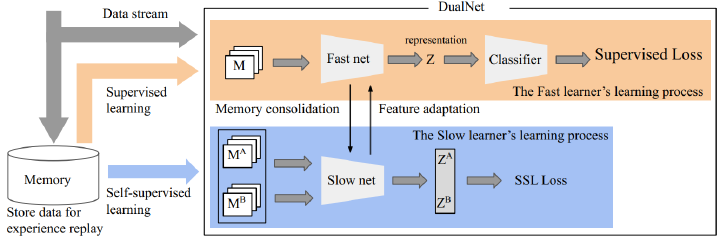
Abstract
According to Complementary Learning Systems (CLS) theory in neuroscience, humans do effective continual learning through two complementary systems: a fast learning system centered on the hippocampus for rapid learning of the specifics and individual experiences, and a slow learning system located in the neocortex for the gradual acquisition of structured knowledge about the environment. Motivated by this theory, we propose a novel continual learning framework named DualNet, which comprises a fast learning system for supervised learning of pattern-separated representation from specific tasks and a slow learning system for unsupervised representation learning of task-agnostic general representation via a Self-Supervised Learning (SSL) technique. The two fast and slow learning systems are complementary and work seamlessly in a holistic continual learning framework. Our extensive experiments on two challenging continual learning benchmarks of CORE50 and miniImageNet show that DualNet outperforms state-of-the-art continual learning methods by a large margin. We further conduct ablation studies of different SSL objectives to validate DualNet’s efficacy, robustness, and scalability